Description
ABSTRACT
Jurisdiction and Appellate Powers of the Nigerian National Industrial Court: Need for Further Reform
Ifeoluwa Olubiyi*
Labour and industrial disputes are inevitable as long as employer-employee relationship exists. The speedy resolution of such disputes is essential to the stability and sustenance of the economy. In recognition of this, the National Industrial Court (NIC) was created under the Trade Disputes Decree No. 7 1967. The court was subsequently elevated to the status of a court of superior record with exclusive jurisdiction in labour and industrial matters in 1992 which has led to debates over its exclusive jurisdiction and powers. The controversies arose because some of the provisions of the Trade Disputes Act became contrary to the 1999 Constitution (as amended). In attempting to resolve this, the National Industrial Court Act,2006 and subsequently the Constitution (Third) Alteration Act 2010 were enacted. Despite these provisions, it seems that this may not be the end of the debate regarding the status of the NIC and its powers/jurisdiction. This paper traces the history of the NIC and examines the relevant judicial decisions and the subsequent legislations that were enacted to grant the court its legitimacy. It finally argues that there is still a need for reform with regards to some of the matters that are within its exclusive jurisdiction and the finality of its decisions in certain instances.
INTRODUCTION
Labour relations are very important in any society since it forms the backbone of the economy. Smooth industrial and labour relations are essential for the sustenance of a stable economy. The reality is that wherever there exist employer-employee relations, disputes are almost inevitable. Such disputes have to be resolved quickly if they are not to adversely affect the economy and society at large. It is in recognition of this that the National Industrial Court was created in 1976 by the Trade Disputes Decree, Decree No.7 1976 with jurisdiction over labour and industrial matters.
However, since the creation of the National Industrial Court (NIC) there have been series of controversies surrounding the status of the court, its jurisdiction and powers. These have in the past led to non-recognition of its jurisdiction and non-enforcement of its judgments by other established courts in the country.1 In order to cure this defect, various legislations have been passed by the Nigerian Government such as the National Industrial Court Act, 20062 and most recently the Constitution of the Federal Republic of Nigeria (Third Alteration Act) 2010.
While the Constitution (Third Alteration) Act has put an end to these controversies by incorporating the court into the provisions of the Constitution and granting it powers of a High Court, there is still a need for reform particularly with regards to some of the matters within its exclusive jurisdiction
* LL.B (Ife), BL, LL.M (Maastricht). Lecturer, Faculty of Law, Afe Babalola University, Ado-Ekiti
- Adeoti F, ‘National Industrial Court: Our Journey from Obscurity – Justice Adejumo (President)’ Furtune News (25 June 2009) accessed 15 April 2016
- Cap N155, Laws of the Federation of Nigeria 2004

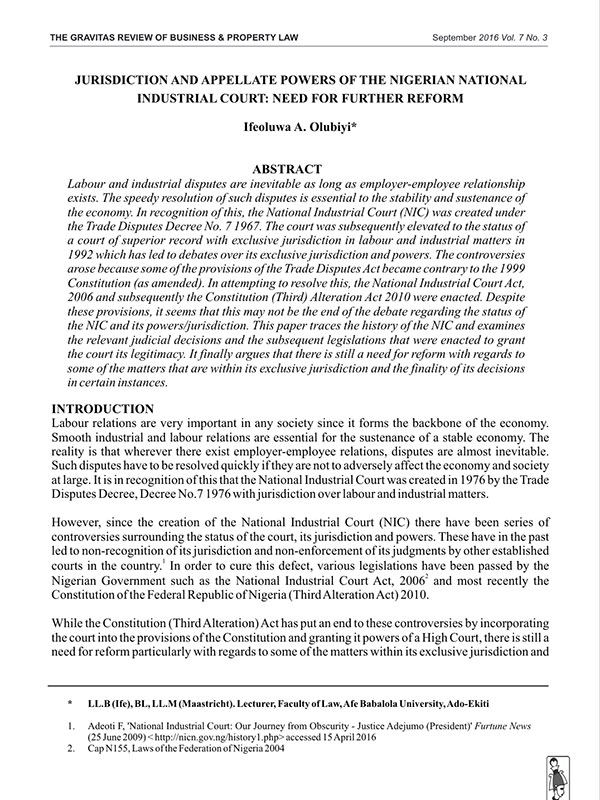
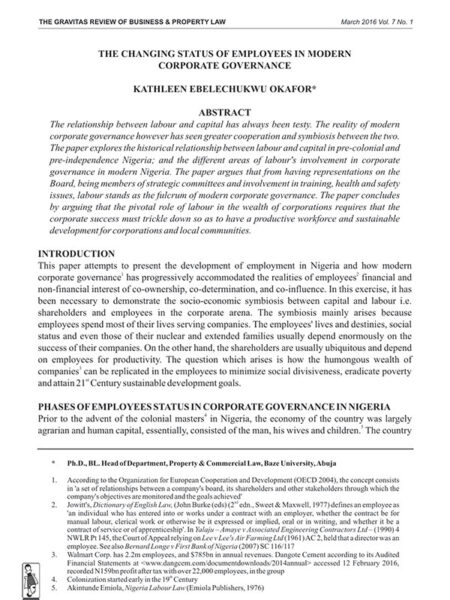
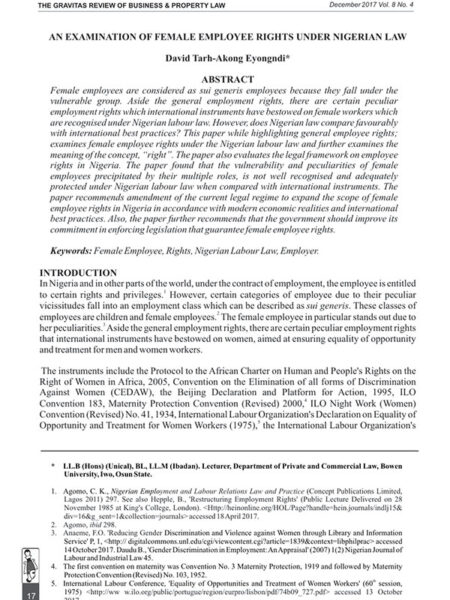
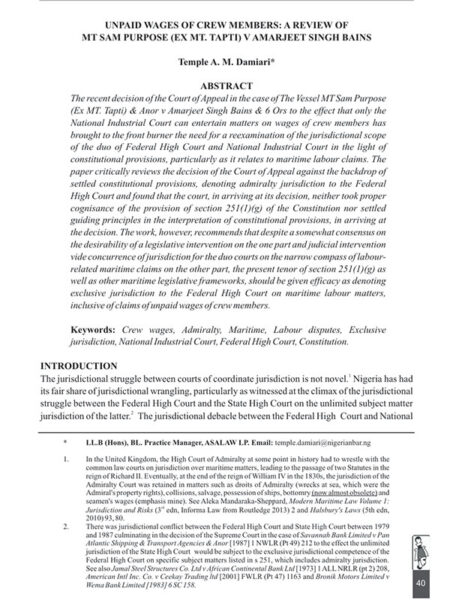
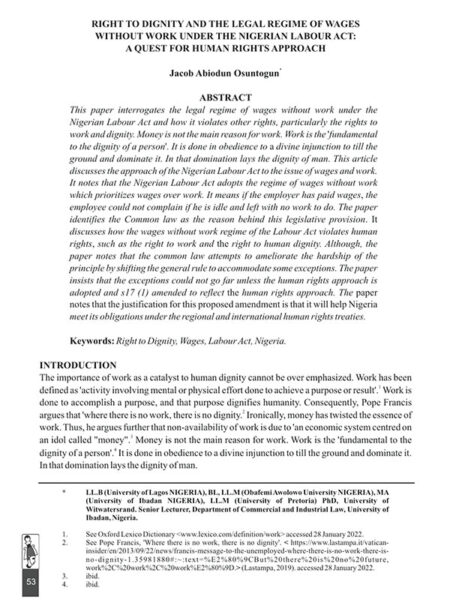


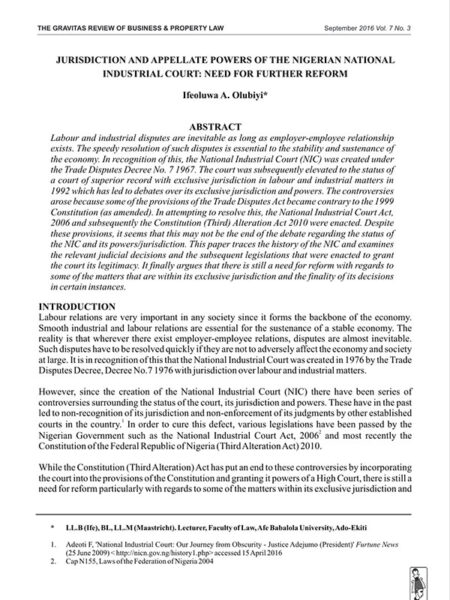
Reviews
There are no reviews yet.